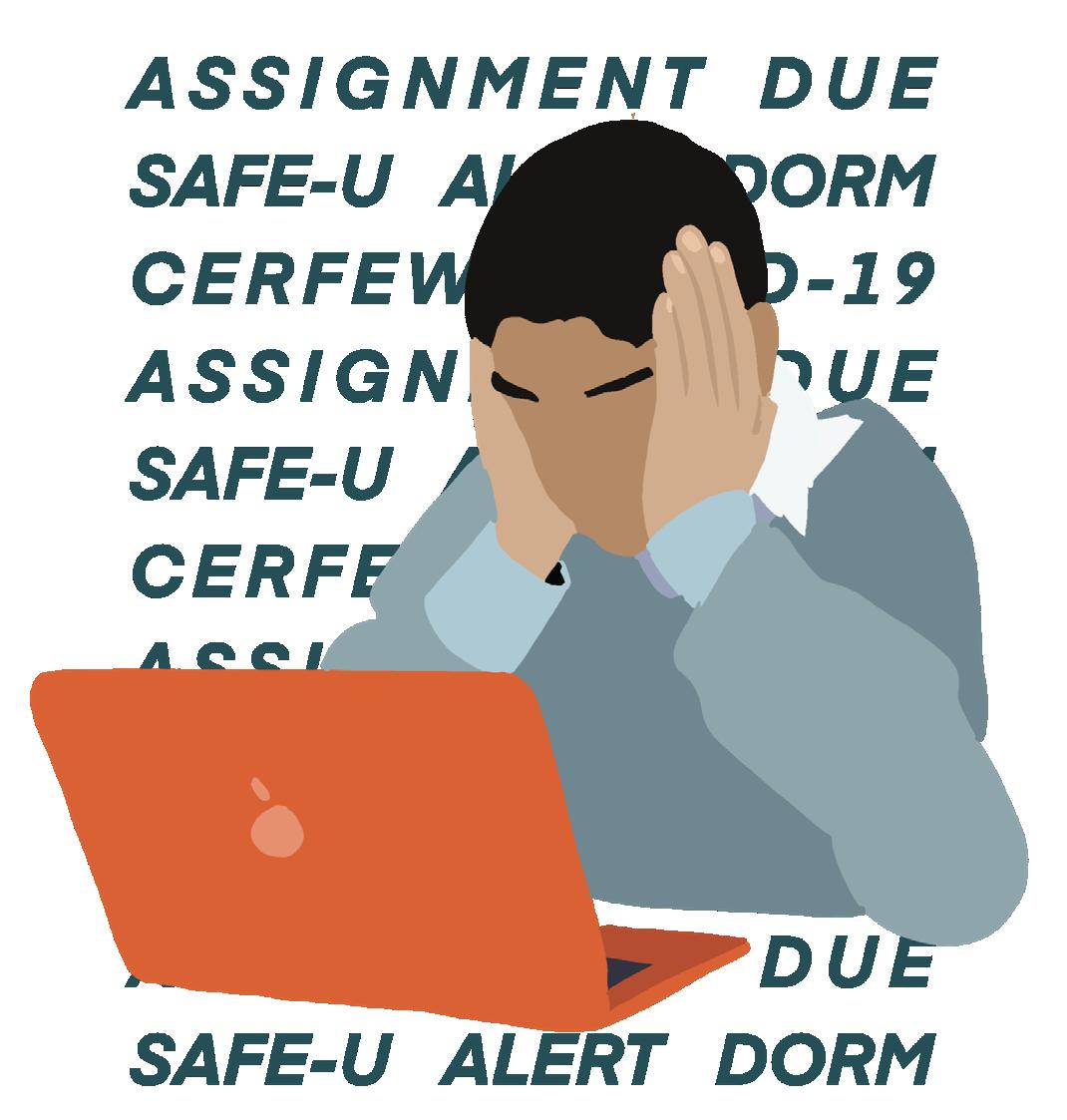
3 minute read
Logging into Freshman Year
The struggles of freshman year during a pandemic.
BY VISHALLI ALAGAPPAN
Advertisement
I was hopelessly lost. I stood in the looming shadow of Kaufert Lab on the St. Paul campus, trying to fi gure out my way in. Google Maps led me to the garage of the lab, located on the backside of the building, which was unsurprisingly locked. I hu ed past Bailey Hall determined to fi nd my way to the front entrance of the Lab. After 23 minutes, my mentor called me to inquire if I was still on my way, and I replied, “I honestly don’t know anymore.” Fortunately, I was able to fi nd the unlocked front entrance to Kaufert Lab after using common sense over Google Maps. I fi nally met the people who had been tiny rectangles on my computer for weeks. It was exhilarating to simply see people in three dimensions and not interrupt someone “because of the medium of Zoom.” The hu ng and pu ng were all worth it for this hour of human interaction. As I made my cornstarch plastic with my fellow FaBEO members, everyone empathized with me about how challenging it was for them to fi nd the lab when they were freshmen. 2 The majority of the members of FaBEO were upperclassmen, and I couldn’t help but notice how comfortable everyone was around each other, socially distanced of course. Although everyone was so welcoming and amicable, I felt lonely.
FaBEO is the Food and Bioproducts Engineering Organization. As a potential bioproducts and biosystems engineering major (yeah, I know, it’s a mouthful), FaBEO was the perfect student group for me. Besides, all the orientation leaders pushed joining student groups on us like Uncle Sam posters during World War I. However, the reality is that during this public health war, recruiting students into the ranks of student groups is simply not enough to make up for our lost freshman experience.
We mourn not sprinting out onto the fi eld and making the historic M, not exploring every nook and cranny of campus and fi nding the perfect quaint co ee shop, not meeting new people and having meaningful conversations, and so much more. Every freshman, regardless of their living situation, feels disconnected from the vibrant and bustling campus we based our dreams upon. Oftentimes, I feel professors and administrators don’t realize the intensity of loneliness and the mental exhaustion this semester has imposed on us. All we do is stare at a screen all day, sleep if we can, and eat just to sustain ourselves for more monotony and academic and emotional distress. Professors set up o ce hours and encourage us to attend, but at the end of the day, it’s yet another Zoom meeting to log into. Almost always, it’s easier to dismiss the confusion regarding an integral concept rather than have the grey of the waiting room screen refl ect against our tired eyes. This semester debuted a “new normal,” something that will follow us into the spring semester. However, this new normal is emergency remote learning. This emergency has dragged on longer than any of us might have expected, but emergencies and pandemics do end—at some point, I’m told. The reality of this pandemic is lonesome and excruciating to learn and live through. Many upperclassmen survive this emergency remote learning by leaning on the bonds they have created and the knowledge of collegiate operations they have accumulated in the years prior to the COVID-19 pandemic. Unluckily for us, we freshmen have to navigate through this emergency style of academics and social life without those bonds and knowledge. The pandemic has infl icted us with poor physical health, death, loss of loved ones, as well as social distancing, deterioration of mental health, and an utter upheaval to the life we once knew. I do not believe in absolute optimism nor the dismissal of our reality by saying, “Oh, but everyone is going through this.” However, I do trust that we can distract ourselves from our reality with empathy for others and a pursuit for a community. Numerous freshmen are struggling and though professors have been accommodating, it doesn’t hurt to validate students’ experiences and feelings during class, o ce hours, and private meetings. Nor were the orientation leaders necessarily wrong in their student group marketing campaign. It is most defi nitely awkward to meet new people over Zoom, but believe that you are welcome and that your little rectangle on the screen belongs with the others.









